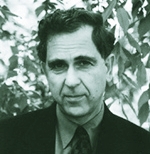
Modern liberalism has extended and revised the classical liberal understanding of freedom and its relationship to power. Through various strategies of exclusion and evasion, the classical liberals denied equal rights to unpropertied men, racial minorities, and women. Modern liberals have called for a democratization of citizenship--for equal civil rights and political rights. They have also come to understand freedom as involving a right to basic requirements of human development and security necessary to assure equal opportunity and personal dignity.
To guarantee those rights, liberals have supported an increased economic and social role for the state, but at the same time, they have insisted on stronger safeguards against arbitrary power. Modern liberalism calls, therefore, not just for broader social protections, but also for more robust guaratees of civil liberties and equal rights and greater transparency of governmental decisions.
In addition, whereas conservatives have treated private business corporations as analogous to individuals and deserving of the same liberties, liberals have regarded corporations as a phenomenon of power, requiring control like government itself.
In all of these respects--the extension of democracy and equal rights, the assurance of basic requirements of human development and economic security, stronger protections of civil liberties, and the regulation of business--liberals have come into conflict with conservatives.
So, too, have differences emerged in international relations, where liberals have been more supportive than conservatives of a system of international institutions and norms intended to thwart aggression and war and to protect human rights.
The split between modern liberals and conservatives involves fundamental differences in the conception of freedom and its relationship to equality. But the conflict also involves different theories of power. Modern liberalism has been a way of meeting the demands of power as well as justice. As I put in Chapter 1:
[L]ike constitutional liberalism, modern democratic liberalism seeks to promote
the creation as well as the control of power. Rights for the unpropertied,
racial minorities, and women are not simply a check on the powerful; full
inclusion also promotes a more creative and productive society. The expanded
sphere of state action has enabled liberal governments to contend successfully
with war and other crises and to promote economic growth and stability. In
disciplining the market as well as the state, the central liberal objective has
been not just to circumscribe power in private hands, but also to make the
market more productive within its appropriate scope. A liberal international
order promises to conserve and augment national power as well as properly
regulate it.
In describing these ideas as a theory of freedom’s power, I don’t wish to give the impression that liberals first formulated the theory and then carried out policies consistent with it. Rather, modern liberalism emerged during the nineteenth and twentieth centuries in a series of ad hoc responses to the challenges of war, economic crisis, social degradation, despoliation of the environment--and political competition. Liberals are committed not just to high ideals, but to making them work in practice. In that sense, “theory” has played a more limited role in liberal politics than it has in the more ideologically driven spheres on both the left and the right.
In speaking of theory, therefore, I mean only to refer to the interrelated political ideas that gradually emerged as characteristic of liberal thought. Liberals continue to disagree about the deeper philosophical basis of these ideas--and some would not admit the creation of power as a relevant consideration. But liberalism would not be around today if the liberal democracies had not satisfied the imperatives of power and overcome the threats of totalitarian regimes and economic collapse. And liberalism will not be around tomorrow if it does not continue to summon the power to meet new threats to our freedom, prosperity, and survival.
Paul Starr



0 Comments:
Post a Comment
Links to this post:
Create a Link
<< Home